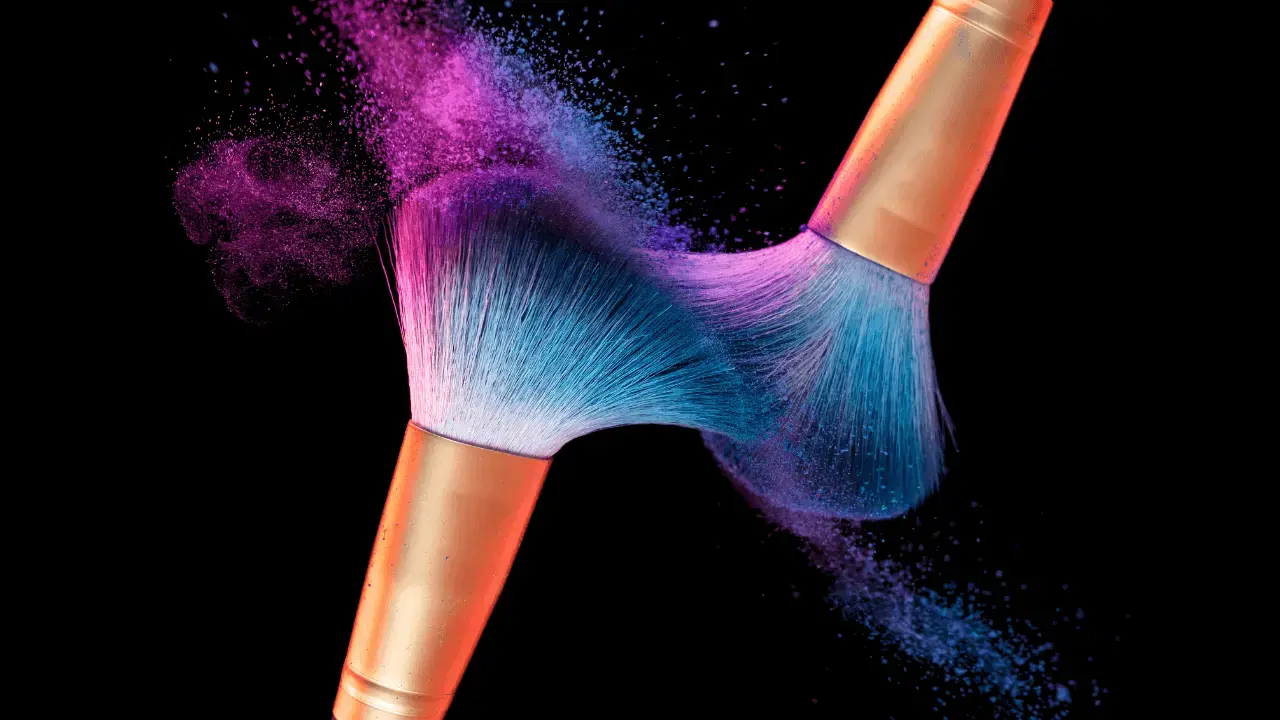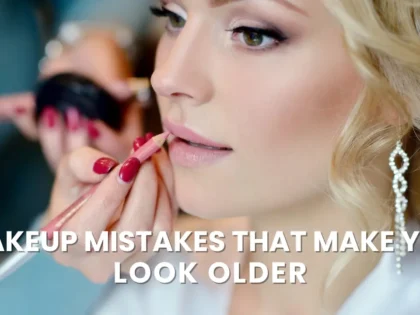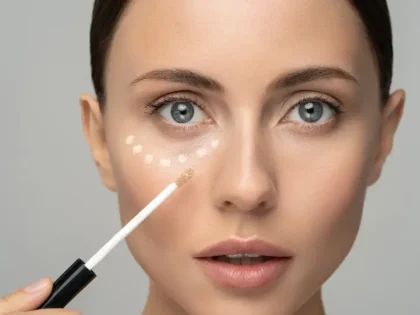How to Clean Makeup Brushes Properly at Home

For Distributors & Wholesalers
We welcome partnerships with distributors and wholesalers who wish to expand their business with a trusted and growing cosmetic brand.
Why Partner with Avlon International?
- Wide range of cosmetics: Nail polish, mascara, kajal, eyeliner, liquid lipstick, lipstick & more.
- Premium quality with competitive wholesale pricing.
- Attractive margins and fast-moving products.
- Assured support with marketing materials & promotional offers.
- PAN India shipping with secure packaging.
📦 Minimum Order Quantity (MOQ): 1 master carton (72 trays)
💰 Special Discounts: Available for bulk & long-term partners.
🚚 Dispatch & Delivery: PAN India in around 10-15 days.
📞 Contact Us:
Phone / WhatsApp: +91 88105 67775
Email: contactus@avloninternational.com
Website: www.avloninternational.com
Clean Makeup Brushes Properly
Makeup brushes are essential tools in your beauty routine, but they can quickly accumulate dirt, oil, and product buildup if not cleaned regularly. Cleaning your makeup brushes isn’t just about maintaining their quality—it’s also a critical step in protecting your skin from breakouts, infections, and irritation. In this blog post, we’ll guide you through why cleaning your brushes is important, how often you should do it, and the best techniques to clean your makeup brushes properly at home.
You may also like:
Why Is It Important to Clean Your Makeup Brushes?
If you’re regularly using your makeup brushes without cleaning them, you’re spreading bacteria, oils, and old makeup across your face. Here are the main reasons why you should clean your brushes:
1. Prevent Breakouts and Skin Irritations
Dirty makeup brushes collect bacteria, dust, dead skin cells, and oils. When you use these brushes on your face, you’re transferring all these impurities onto your skin, which can clog pores and lead to breakouts. Regularly cleaning your brushes helps keep your skin clear and healthy.
2. Better Makeup Application
When makeup brushes are full of product buildup, they can’t perform at their best. Dirty brushes can make your foundation appear cakey, your eyeshadow muddy, and your blush streaky. Clean brushes allow for smoother and more precise makeup application.
3. Extend the Life of Your Brushes
Proper care and cleaning of your makeup brushes will help them last longer. Over time, product buildup can damage the bristles, causing them to break or become less effective. By cleaning them regularly, you ensure that they remain in top condition.
4. Avoid Bacterial Infections
Using unclean brushes can increase your risk of skin infections. Brushes that come into contact with your eyes or lips, like eyeshadow and lip brushes, can be breeding grounds for bacteria. Cleaning them minimizes the risk of infections like pink eye or cold sores.
How Often Should You Clean Your Makeup Brushes?
The frequency with which you clean your makeup brushes depends on how often you use them and what type of products you’re applying. Here’s a general guide:
- Foundation and concealer brushes: These should be cleaned at least once a week since they’re used for cream and liquid products, which are more prone to bacteria buildup.
- Eyeshadow and eyeliner brushes: Clean them every one to two weeks, especially if you use them for cream or gel formulas.
- Powder brushes (blush, bronzer, setting powder): These can be cleaned every two to three weeks since they’re used with dry products.
- Lip brushes: Clean after each use, especially if you use different shades.
- Beauty sponges: These should be cleaned after every use since they tend to absorb the product and harbor bacteria.
What You’ll Need to Clean Your Makeup Brushes
Before we dive into the cleaning process, it’s important to gather the right tools. You don’t need anything fancy—just a few simple items that you likely already have at home.
Items You’ll Need:
- Mild shampoo or brush cleanser: Baby shampoo or a gentle, sulfate-free cleanser works well for cleaning brushes.
- Olive oil or coconut oil (optional): If you’re cleaning brushes with stubborn makeup like foundation, oil can help break down the product more effectively.
- A clean towel: For drying your brushes.
- A small bowl: For mixing the cleaning solution.
- Lukewarm water: Avoid hot water as it can damage the glue holding the bristles.
- A brush cleaning mat (optional): These mats, with textured surfaces, help you deep clean the brushes.
Step-by-Step Guide to Cleaning Makeup Brushes at Home
Now that you’ve gathered your supplies, follow these steps to clean your brushes properly:
Step 1: Rinse the Bristles
Hold each brush under lukewarm water, ensuring that the water runs over the bristles but not over the handle. You want to avoid getting water into the base of the bristles, as this can loosen the glue holding them in place. Keep the brush angled downward to avoid damaging it.
Step 2: Create a Cleaning Solution
In a small bowl, mix a few drops of mild shampoo or brush cleanser with lukewarm water. If you’re cleaning brushes used with cream products, like foundation or concealer brushes, you can add a drop of olive or coconut oil to help dissolve the makeup.
Step 3: Swirl and Lather
Gently swirl the brush in the cleaning solution. For extra cleaning power, you can use your fingers to massage the bristles or use a brush-cleaning mat. Work the solution into a lather to break down makeup residue, dirt, and oils. Be sure not to press too hard, as this can damage the teeth.
Step 4: Rinse Thoroughly
Once you’ve lathered the brush and removed the makeup residue, rinse it thoroughly under lukewarm water. Again, keep the brush angled downward to avoid water getting into the handle. Rinse until the water runs clear, ensuring no soap or makeup is left behind.
Step 5: Gently Squeeze Out Excess Water
After rinsing, gently squeeze the bristles to remove excess water. Avoid tugging or pulling at the bristles, as this can cause them to become loose or misshapen.
Step 6: Reshape the Brushes
After cleaning, reshape the bristles back into their original form. This is especially important for brushes with tapered or angled heads, as they can lose their shape when wet.
Step 7: Dry the Brushes
Place your brushes on a clean towel to air dry. It’s best to lay them flat, with the bristles hanging over the edge of a counter or table. This helps the brushes retain their shape and prevents water from seeping into the handle. Let them dry completely before using them again.
Deep-Cleaning Techniques for Makeup Brushes
If it’s been a while since you last cleaned your brushes, or if you use a lot of heavy-duty products like waterproof foundation, you may need to deep clean your brushes.
Oil and Soap Method
For brushes with stubborn buildup, the oil and soap method works wonders. Here’s how to do it:
- Apply a few drops of oil (olive or coconut) directly onto the bristles and work it in with your fingers. This will help break down the makeup.
- Rinse the brush with lukewarm water.
- Follow up with a gentle shampoo or brush cleanser to remove any remaining oil and dirt.
- Rinse and repeat if necessary, then follow the drying steps outlined above.
Disinfect Your Brushes
If you want to disinfect your brushes, especially after illness or infection, you can use a mixture of water and rubbing alcohol. After your regular cleaning routine, dip the bristles into a small amount of rubbing alcohol, then rinse and let them dry.
Tips for Maintaining Your Makeup Brushes
- Clean brushes regularly: As mentioned earlier, try to clean your brushes weekly to prevent buildup.
- Store your brushes properly: Store brushes upright in a cup or brush holder to help maintain their shape. Avoid tossing them loosely in a makeup bag, where they can get damaged or pick up dust.
- Use a brush cleaner between washes: If you want to quickly clean your brushes between uses, consider using a brush cleaner spray. Simply spritz your brush and wipe it off on a clean tissue or towel.
Conclusion
Cleaning your makeup brushes properly is a crucial part of maintaining your skin’s health and ensuring your makeup looks flawless every time. By regularly cleaning and caring for your brushes, you’ll prolong their life and enhance your makeup application. Follow these steps to clean your makeup brushes at home with ease, and you’ll enjoy the benefits of better skin and smoother makeup.
At Avlon International, we care about providing quality makeup products and the knowledge to use them properly. Keep your brushes clean, and enjoy a flawless finish with every application!
FAQ’s:
1. How often should I clean my makeup brushes?
2. What’s the best way to clean makeup brushes?
3. Can I use regular soap to clean my makeup brushes?
4. Why is cleaning makeup brushes important?
5. Can I clean brushes with olive or coconut oil?
6. How do I dry my makeup brushes after cleaning?
7. What happens if I don’t clean my makeup brushes regularly?
📌 Disclaimer
The information provided in this blog is for general informational purposes only. While Avlon International makes every effort to ensure the accuracy and reliability of the information shared, we make no representations or warranties of any kind, express or implied, about the completeness, accuracy, reliability, suitability, or availability with respect to the content.
Any reliance you place on such information is therefore strictly at your own risk. Avlon International shall not be held liable for any loss, damage, or inconvenience arising in connection with the use of this blog or its content.
For official details regarding our products, distributor policies, or business partnerships, please contact us directly at WhatsApp +91 88105 67775.




